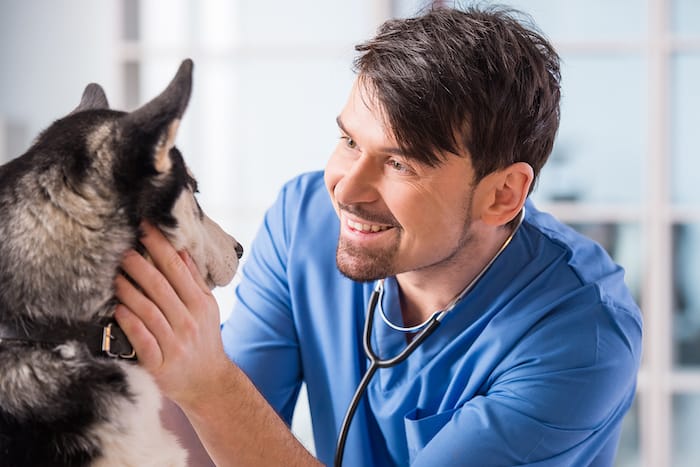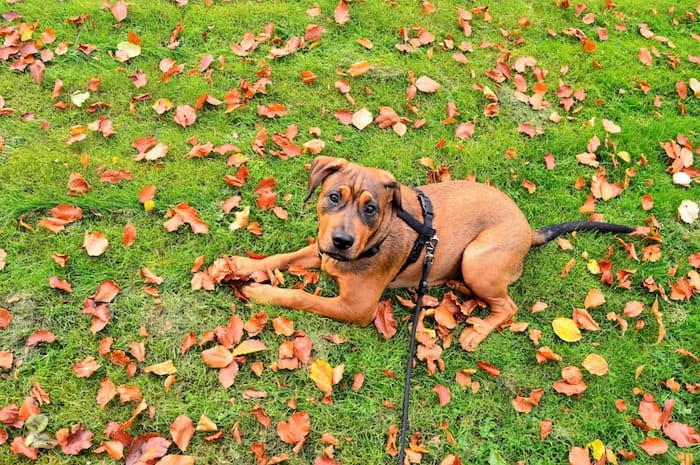It’s never a pleasant experience when your dog has diarrhea. Not only is it messy, but it can also be a sign that something is wrong with your pup. You may ask yourself “what causes Diarrhea?” or “should I exercise my dog when he has diarrhea?“. We’ve got the answers to those questions, plus advice on how to deal with dog diarrhea and get your pup back to his normal self in no time.
Read on to learn everything you need to know about dog diarrhea, including causes, home treatment options, and when to call the vet.
Causes of diarrhea
The first step in dealing with diarrhea is to figure out what’s causing it. If your dog has only had one or two loose stools, there’s a good chance that it’s simply an upset stomach and nothing to worry about. However, if the diarrhea is severe or persists for more than a day or two, it’s time to take action.
There are a few different things that can cause diarrhea in dogs, including:
Dietary changes
A sudden change in diet, such as switching to a new food or treats, is one of the most common causes of diarrhea. Dogs’ stomachs are sensitive and can react badly to new ingredients.
Infections
Both bacterial and viral infections can cause diarrhea. If your dog is also vomiting, has a fever, or seems lethargic, an infection likely is to blame.
Parasites
Intestinal parasites, such as worms, are another common cause of diarrhea. If your dog has never been dewormed or you’re not sure of their status, this is a good possibility.
Stress
Just like humans, dogs can experience diarrhea when they’re feeling stressed. This can be due to a change in environment, such as moving to a new home, or something as simple as a loud noise that startles them.
Allergies
Food allergies are relatively rare in dogs, but they can happen. If your dog has been eating the same food for a while and suddenly has diarrhea, an allergy could be the cause.
What to do (and not do)
If your dog has diarrhea, there are a few things you should do (and not do) to help them feel better.
The Do’s
- Offer small, frequent meals of bland food. Boiled chicken and rice is a good option.
- Make sure they’re drinking plenty of water.
- Take them out for frequent potty breaks.
- Add probiotics to their food.
- Give them over-the-counter anti-diarrheal medication if recommended by your vet.
The Don’t’s
- Don’t offer them their regular food. This will only make diarrhea worse.
- Don’t change their food abruptly. If you need to switch foods, do it slowly over the course of a week or so.
- Don’t feed them table scraps or human food. This can upset their stomach even more.
- Don’t give them cow’s milk. It can cause digestive problems.
It’s generally best to avoid exercising your dog when they have diarrhea, as this can further upset their stomach and make diarrhea worse. If your dog is already feeling better and their stool has returned to normal, a short walk may be OK, but be sure to keep an eye on them in case they need to go again.
When to see the vet
Dogs are prone to a variety of digestive issues, from simple stomach upsets to more serious problems like parvovirus. It can be difficult to know when your dog’s diarrhea is cause for concern, but there are a few general rules to follow.
If your dog has diarrhea for more than a day or two, if they’re vomiting, or seems lethargic, it’s time to see the vet. These could be signs of a serious infection or other health problems.
When your dog is acting normal but their stool is bloody or black, this could also be cause for concern and warrant a trip to the vet. By paying attention to your dog’s stool and overall health, you can quickly identify when it’s time to seek professional medical help.
Prevention of diarrhea
The best way to deal with diarrhea is to prevent it in the first place. Here are a few things you can do to keep your dog’s digestive system healthy
- Offer a high-quality diet. A good diet is important for overall health, including digestive health. Look for food that’s appropriate for your dog’s age, activity level, and any health conditions they may have.
- Don’t make sudden changes to their diet. If you need to switch foods, do it gradually over the course of a week or so.
- Feed them on a regular schedule. Avoid letting them graze all day or skip meals.
- Make sure they’re getting enough exercise. Exercise helps keep the digestive system moving and can help relieve stress.
- Add probiotics to their diet. Probiotics are live bacteria that help keep the digestive system healthy. They can be found in some commercial dog foods, or you can give them a supplement.
- Talk to your vet about deworming. Worms are a common cause of diarrhea, so it’s important to keep your dog free of them. Your vet will recommend the best deworming schedule for your dog based on their age, lifestyle, and health status
Dealing with diarrhea can be a hassle, but by following these tips, you can help prevent it and keep your dog’s digestive system healthy.
The bottom line
Dogs can get diarrhea for a variety of reasons, from simple stomach upsets to more serious health problems. If your dog has diarrhea, there are a few things you can do at home to help them feel better. However, if the diarrhea lasts for more than a day or two if your dog is vomiting, has a fever, or seems lethargic, it’s time to see the vet. By paying attention to your dog’s stool and overall health, you can quickly identify when it’s time to seek professional medical help.




